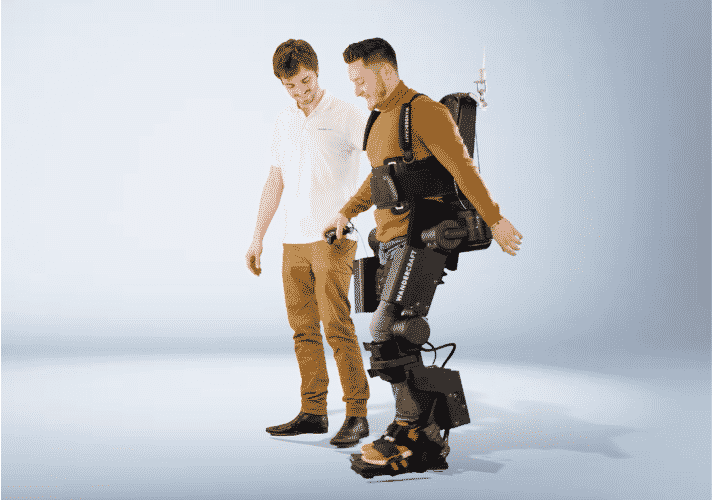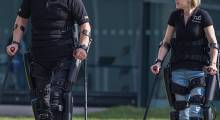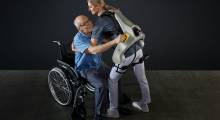Wandercraft’s gait-training exoskeleton device, Atalante, has been cleared by the U.S. Food and Drug Administration. Since 2020, the French company has deployed 22 of its Atalante exoskeletons in clinical settings, and five in other research settings.
Wandercraft is now launching its commercial operations in the U.S. with a corporate office in New York, led by CEO Matthieu Masselin. The company said it expects to deliver the first Atalante exoskeletons during the first quarter of 2023.
“Strokes reduce mobility in more than half of stroke survivors aged 65 and older,” said Masselin in a statement. “With the input of many healthcare teams worldwide, Wandercraft has designed a next-generation, self-balancing, multi-directional gait exoskeleton to enable intensive, early, and specific gait training for neurorehabilitation therapy and improve recovery in stroke patients, especially for those with significant upper extremity involvement.”
“This clearance is a significant milestone for Wandercraft, but it's only the start, as we are working on more indications,” he added.
Atalante already used in some European hospitals
Wandercraft was established in 2012 and said its mission is to develop gait-improving technologies. The company commercialized the first version of the Atalante in 2019.
It said the device has already been CE-marked and has been used by hundreds of patients in European rehabilitation hospitals for a variety of conditions. In the U.S., Atalante has been tested in some clinical settings.
“Its unique self-balancing feature enables patients to move in multiple directions hands-free, without an assistive device, and includes a dynamic balance mode unavailable elsewhere in the market,” the company said.
“I am happy to hear the Wandercraft Atalante exoskeleton has been approved for use in the U.S. market,” said Arun Jayaraman, PT, Ph.D., and executive director of Technology & Innovation Hub at Shirley Ryan Ability Lab. “It will add an innovative treatment option for stroke patients, especially for those with significant upper extremity involvement needing gait rehabilitation
“I'm thrilled to see that the Wandercraft Atalante exoskeleton is receiving FDA approval,” commented Dr. Kenneth Ngo, medical director at Brooks Rehabilitation Hospital. “This means that many patients with paralysis in the United States will be able to take advantage of this technology to help them recover. We're also excited to partner with Wandercraft's team to further explore this technology and to help as many people as we can.”
Article topics
Email Sign Up
















